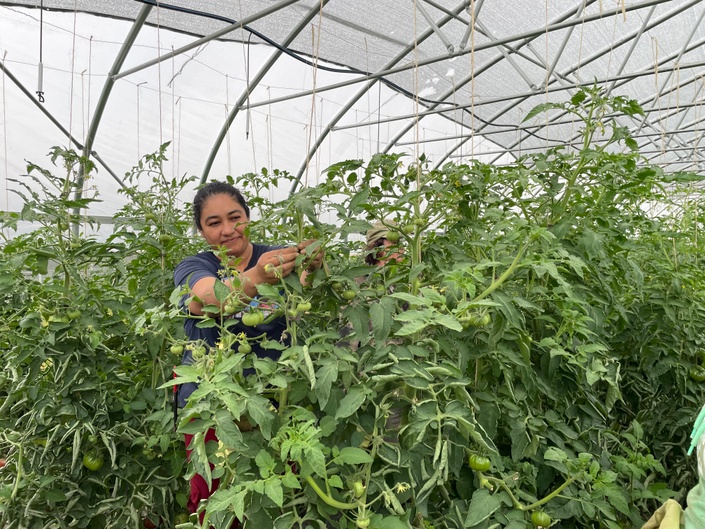Main Content
New FREE classes for commercial urban agriculturists, city planners, and policymakers are available through the Cornell Small Farms Program in partnership with USDA-AMS Marketing Services Division and Rooted, the Madison, WI-based center for urban agriculture enterprise and education.
This curriculum development draws on the evolution of 14 urban farms, and insights from over 150 policymakers, urban planners, funders, and nonprofit and community organizers engaged in local food systems and urban farming. We are excited to bring this suite of urban agriculture courses for free until January 31, 2025, to provide critical information for building or supporting successful urban farms.
PUA 101: Deciding Where to Farm in the City reviews how to create a commercial urban farm with community in mind. Other topics include urban land access and tenure, and regulations that impact urban farming.
PUA 102: Urban Farm Planning and Management covers factors that contribute to an economically viable urban farm, including choosing a business model, knowing when to expand the farm, crop planning, analyzing markets, managing on-farm labor, and promoting a strong farm culture.
PUA 103: Urban Farming by Community Nonprofits is designed for nonprofit farm staff and members of community organizations that manage urban farms. It goes deeper into the specific concerns of operating an urban farm as a nonprofit.
PUA 201: Urban Agriculture Skills for Planners help planners from any size city or municipality understand how urban agriculture is affected by planning priorities, zoning, comprehensive planning. The course also explores strategies to foster inclusive community engagement, sustainability and equity. The planners course is worth 6 Certification Maintenance (CM) credits through American Planners Association.
After participating in these courses, participants will be able to:
– Articulate the physical, economic, and social factors important to building viable urban farms.
– Understand the relevant policy and planning tools that can support or hinder an urban farm.
– Describe the economic opportunities and risks that affect long-term viability and sustainability of urban farms.
– Distinguish when a nonprofit business structure can be more effective in meeting social goals for urban farming than a for-profit model.
Each course is designed as a standalone learning experience with unique video content and materials. An introductory enrollment offer allows free access to these courses until January 31, 2025. Learn more and enroll today.

Credit: Cornell Small Farms Program
Leave a Reply